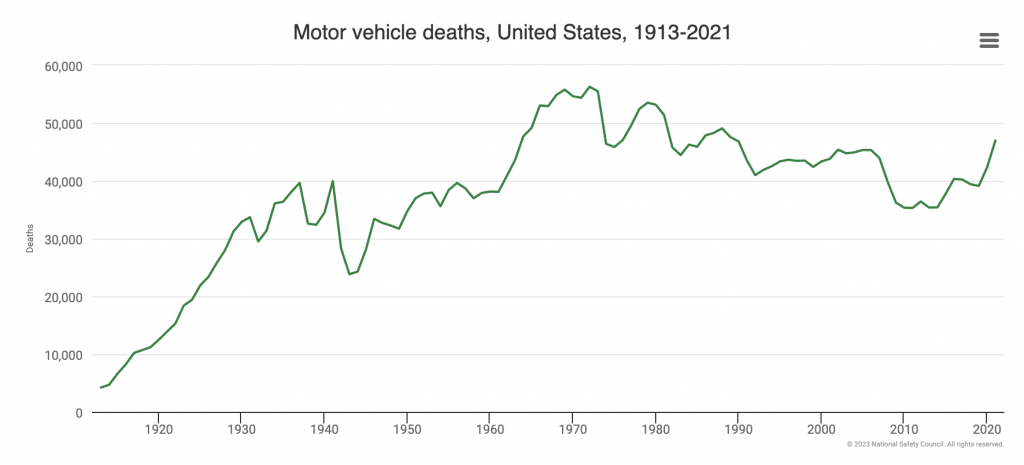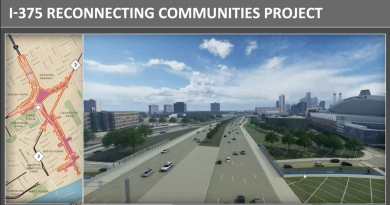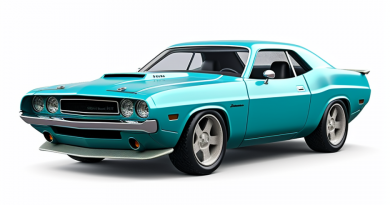Motornormativity: How Cars Undermine Empathy And Promote Violence
Twitter and other urbanist discourse refers to it as “carbrain.” Now, it’s got an academic name. A study from the UK explores the degree to which our car-centric society has normalized the disastrous toll automobiles incur on our air, our cities, and our lives. The authors of the study call this phenomenon “motornormativity,” and it’s the headline of an article, “How Social Norms Hide a Major Public Health Hazard.”
Surveying a random sample of 2,157 adults in the UK, the study asked respondents to make judgments about parallel statements referring to cars or other social ills that are more widely accepted as being bad. Fascinatingly, but perhaps not that surprisingly, respondents were far more permissive about the ill effects of driving than they were about things like cigarettes. Other points of comparison involved asking respondents whether they think that the police should respond to the theft of someone’s private property left out in the street, and then comparing “someone’s private property,” generally, to a car, which, let’s remember, is a type of someone’s private property that is parked on public streets. Or asking respondents whether it’s okay to speed while driving, versus whether they think it’s okay to commit acts of vandalism or littering or what have you.

I recall my post from many moons ago in which I lamented having been blocked by a longtime Facebook friend after I suggested that she might reconsider bragging about beating a speeding ticket, because speeding is dangerous and kills people. In that article, I pointed out the absolutely insane year-over-year increases in roadway fatalities in Michigan alone. Would it have been considered socially acceptable if someone bragged about beating a gun charge? Pulling a knife on someone and getting off?
No, of course not. But carbrain makes it okay when it involves motor vehicles.
And this is the point of the article.
The authors say that “in the specific context of individual motor transport, we have a cultural inability to think objectively and dispassionately,” and they suggest that this will pose a huge hindrance to our society’s ability to address either the public health crisis of motor vehicle deaths or the carbon-intensivity of car dependency. It’s interesting given that motor vehicle deaths have been rising substantially over the past decade after a general downward trend associated with the implementation of seatbelts and seatbelt laws in the 1960s and 1970s, superior crash engineering, and fancy safety features in more recent years.

Why? Vehicles keep getting larger and heavier, something I’ve written about. But this is the first article I’ve seen that really unpacks the social and psychological phenomena that seem to drive this process. Social media discourse seems preoccupied with blaming pedestrians and cyclists for fatalities involving nonmotorized victims, which is the “but what was she wearing” of traffic violence. Distracted driving is certainly a big deal. But it speaks volumes– well beyond the findings of the UK study- that so many people are prepared to just casually disregard the ill effects or lethal effects of driving while they’re eager to judge other crimes, even far lesser crimes.




